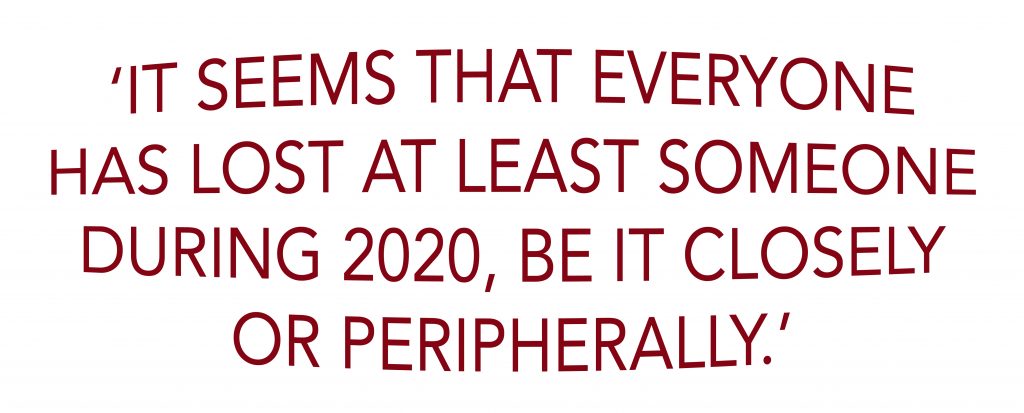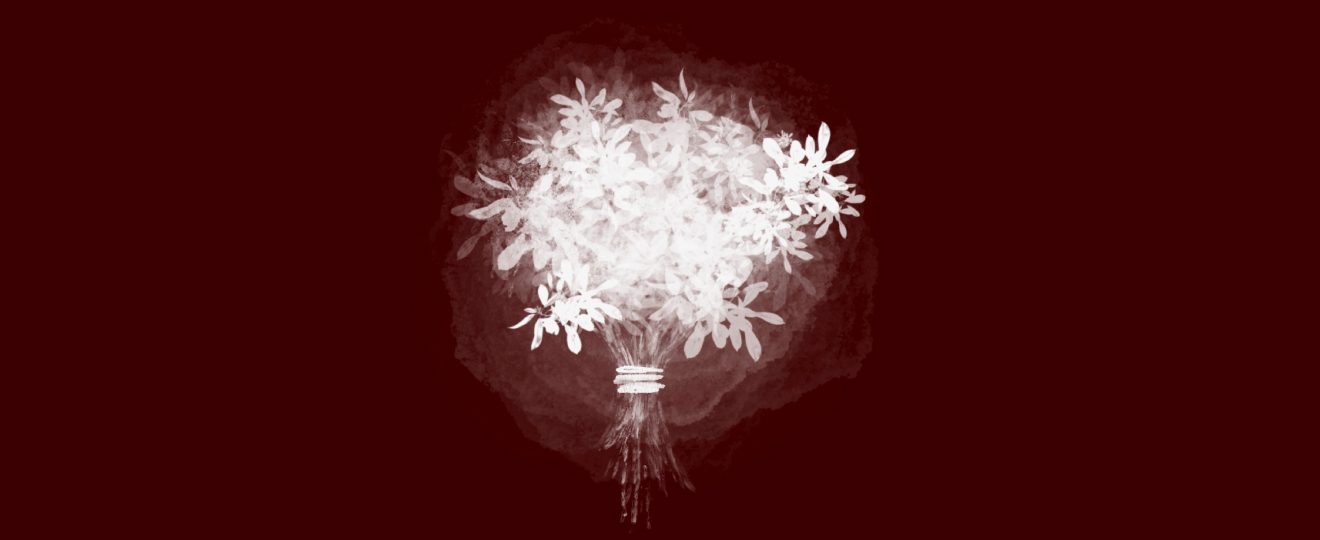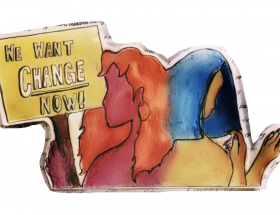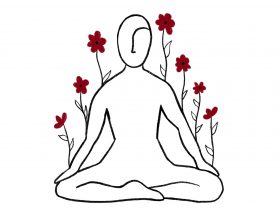On December 31st 2020 my mother and I set out on a mission to find white roses to decorate for the family New Years Eve dinner we were hosting at our home. We searched high and low across every flower stand on every corner across our area to no end. Every stand we drove towards had used up their supply for the day – and we felt incredibly daft for not knowing better than to buy the flowers after 4 pm on the 31st. Things were closing up fast so as a Hail Mary we went to one last place, a small market a bit further away from where we usually go, hoping, praying, seeking to buy some damn flowers.
To our great relief, when we arrived, the place seemed to be draped in white roses, with rows and buckets full of them still left. My mom struck up some friendly chit chat with the woman working the flower stand, piles of white roses stacked up all around her like a sweetly-scented halo, as the man standing behind her put together our bouquet to take away. My mom mentioned how long it had taken for us to find white roses and laughed at the idea that everyone had come up with the same idea that we had for decoration. The woman replied with a friendly shrug and shook her head slightly, telling us the reason she had shipped in so many white roses was not because of New Years Eve but rather because of the amount of people looking to express condolences.
Her comment, though in hindsight quite morbid, was not met with antipathy or silence on our end but rather started a revealing conversation about the ways the pandemic had affected her family and business (which lasted quite a while) before we received the roses and left. Death is the new normal in the middle of a pandemic – especially in Mexico City where people seem to be dropping like flies at an alarming rate (forgive my lack of decorum). I found, when I was back at home, that when interacting with other individuals in casual conversation the topic of death almost always came up.
My aunt complained to me once in conversation, I remember, that she could smell something burning constantly – claimed it must be the crematorium carrying the smell of burning bodies from long distances to her house.

The thought of the spectral presence of death existing in the most basic mundane task of breathing air is quite horror inducing, but it really has become something we grow to accept. We cringe instead of crying, and move on.
It seems that everyone has lost at least someone during 2020, be it closely or peripherally, and we have learned to compartmentalize it because that’s just how collective trauma seems to work. We have ghosts hovering above us all the time it seems, like a halo of white roses, now more than ever, and what that has shown me during this whole ordeal is that loss has deeply potent effects on our relationships to and with each other.
Having the idea of death contaminate your periphery inevitably means we have the knee jerk reaction of grief inform just about everything we do. When I say death, I do mean the literal event of human life ending, but I also mean a more symbolic presence. We mourn the loss of an entire year, the memory of lost time. We mourn the possibilities that could have been, the people we could have been, the what-if scenarios, how things may possibly have turned out had the flow of things remained the same.
We lay white roses at the fresh, shallow graves we dig with our hands and go through our stages of grief while self-isolating or socially distancing from the people we are scared to infect or by which we are scared to become infected. In our own little shells of tunnel vision, we shed the excess and feel inevitably haunted – above everything so very deeply alone.
This form of grief, though situationally radically different to the many ways through which one could experience the feeling, is at its core the same. It is a traumatic experience, an experience to which we respond through a variety of means– and by this I am not referring to the people who chose to make banana bread and those who went crazy with cabin fever at the beginning of lockdown. I refer here to our fight or flight instinct kicking in, a need to run and survive at all costs, and choosing what to take with us on the way out.
It’s funny, though I am probably spending more time alone now than I ever have in my life, I have also formed some of the most important close connections in the past year than I have ever been capable of doing before. 2020 and the pandemic were personally both about getting rid of everything that seemed to decorate my life and fortifying the relationships that mattered to me. Essentially, in a deep terror of losing everything I dropped what I did not need and reached out to those I love whom I had carelessly left behind, in order to build myself back up from the morbid grief that seemed (and seems) to fill just about everyone’s psyche for months.
The thing about loss and traumatic experiences is that when they happen, the people around you either draw in infinitely closer to you or they organically peel away from your life so as to say they do not belong there any longer. Connections that you form based on grief are ones that can struggle but inevitably are so strong and long-lasting that they make so much clearer who considers you an emotional priority rather than a peripheral interest. Not that having people with whom you are solely peripherally friendly is something bad, but understanding the difference is something as transformative as the traumatic event that reshapes your reality while you are undergoing it. From these intense, nourishing connections, we are capable of keeping ourselves accompanied even when the epidemic of deeply set sadness and loneliness is just as real as the virus creating the ghosts that haunt us, now and perhaps forever.
As for hindsight, I have none to offer yet. But as the traumatic long-lasting effects of the pandemic continue to replay themselves in our memory for years to come, we’ll all have shared something formative that shifted the earth upon which we stood. One can only hope that this connection will continue to mean something to those who shared in the experience, a broader message of empathy that reshapes our reality on a level greater than simply the interpersonal.
Art by Quinn Fagersten




